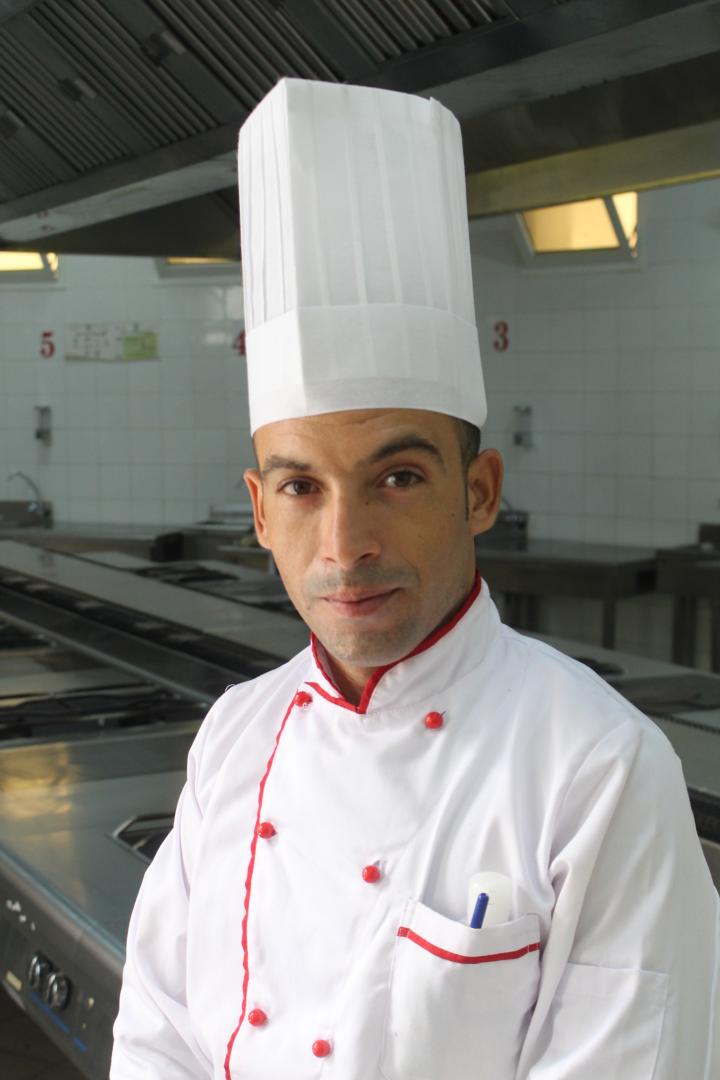Khouloud Hosni knows exactly what she wants to do in future: to become independent and open her own restaurant. "The idea came to me because of my great passion for cooking", says the 27-year-old. She has a university degree in pharmaceutical biotechnology, but she doesn't see any prospects in this field in Tunisia. She does believe however – despite the current restrictions due to the corona pandemic – that there will be opportunities and concrete prospects of working in tourism, which provided around 400,000 jobs in Tunisia before the crisis. That's why she's taking part in a four-week training course at the "Centre de Formation Touristique de Nabeul". This vocational college in the coastal town of Nabeul, around 70 kilometres from the capital Tunis, prepares young women and men for jobs in catering and the hotel industry. "The training enabled me to extend my knowledge", says Hosni.
These vocational training courses focus on the areas of kitchen, room service, restaurant and bar, and are offered by the Deutsche Gesellschaft für Internationale Zusammenarbeit (GIZ GmbH). They form part of the "Returning to New Opportunities" programme run by the German Federal Ministry for Economic Cooperation and Development (BMZ). The courses are aimed both at people who left Germany to return to Tunisia and are now receiving assistance with their career prospects and at local Tunisians seeking new employment opportunities close to home. The Tunisian-German Centre for Jobs, Migration and Reintegration (CTA), which GIZ operates on behalf of the BMZ, provides both groups with advice on career opportunities available to them.




